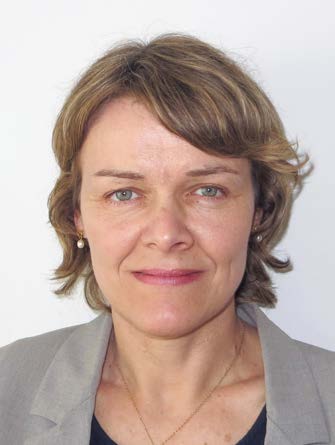Professortiltrædelser på Biologisk Institut
Peter Brodersen og Lotte Bang Pedersen er tiltrådt som professorer på Biologisk Institut.
I den anledning afholdes tiltrædelsesforelæsninger d. 20. maj 2022 kl. 14.30-16.00 i Lundbeck auditoriet i Biocentret, Ole Maaløes Vej 5, København N.
Efter forelæsningerne er instituttet vært for en reception.

Professor Peter Brodersen er tilknyttet Sektion for Bioinformatik og RNA Biologi, Biologisk Institut.
How cells control gene activity – lessons from the green world
Cellular control of gene activity is of fundamental importance in biology. Genetic programs specify developmental fate and adaptation to a changing environment, including defence against potential pathogens. Not surprisingly, the study of gene expression has, therefore, been a major focus of molecular biology for the past 50 years, and tremendous advances have been made in our understanding of how the gene is transcribed, how messenger RNA is being translated, and how the abundance and activity of proteins are regu-lated after completion of their synthesis. Important new developments in the field of gene expression include the ground-breaking discovery that small non-coding RNAs regulate gene expression at all levels, and that covalent modifications of nucleotides in mRNA contribute in a hugely significant way to shape genetic programs. We study these processes us-ing the plant Arabidopsis thaliana, and will discuss some of our discoveries and future research plans in the context of the broader picture of genetic control.

Professor Lotte Bang Pedersen er tilknyttet Sektion for Cellebiologi og Fysiologi
Primary cilia in health and disease
Primary cilia are antenna-like sensory organelles that project from the surface of most non-dividing cells in our body and detect and transmit environmental cues to regulate cell behavior and gene expression, in turn controlling the develop-ment and function of various tissues and organs. Mutations in genes coding for ciliary proteins cause a wide range of diseases and syndromes known as ciliopathies, for which no cures are currently available. It is therefore important, both from a basic scientific as well as medical perspective, to understand the molecular mechanisms by which these organelles are assembled and function to regulate signaling. I will present some published and ongoing research from my group aimed at dissecting the molecular mechanisms by which cells assemble primary cilia, and explain why this is relevant for human disease.
Kontakt
Helle Blæsild
PR & Kommunikation
Biologisk Institut
Mail: helleb@bio.ku.dk
Tlf. 2875 2076
